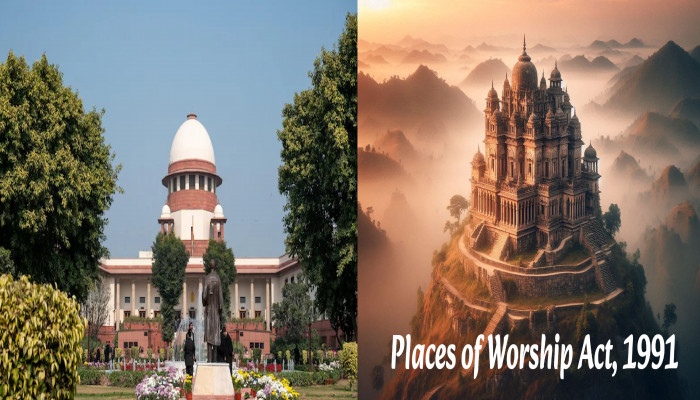Places of Worship Act hearing: SC bars surveys until final ruling
- In Reports
- 06:02 PM, Dec 12, 2024
- Myind Staff
On Thursday, the Supreme Court ordered that lower courts should not accept any new cases or issue specific orders for surveys related to religious sites until it finishes hearing cases about the Places of Worship (Special Provisions) Act, 1991.
The Supreme Court began hearing a group of petitions that both challenged and supported the constitutional validity of the Places of Worship Act. The bench, led by Chief Justice of India Sanjiv Khanna along with Justices PV Sanjay Kumar and KV Viswanathan, is reviewing the law’s scope, purpose, and constitutionality. "Our direction includes that no other court shall pass any specific directions of surveys, no effective interim order shall be passed till the court concludes this case," the CJI said.
The top court also ruled that until further notice, no final or effective interim orders would be issued in outstanding disputes. In addition, the parties have been given four weeks to submit rejoinders, and the Centre has been given four weeks to submit its response to the numerous pleas. The Places of Worship Act passed in 1991, was created to protect the religious nature of places of worship as they were at the time of India's independence. The law prevents courts from handling disputes about changing the character of these sites, except for the Ram Janmabhoomi in Ayodhya. This exception was the basis for the Supreme Court's important judgment in 2019.
Ongoing legal disputes affecting religious properties may be impacted by the resolution of the current procedures. The Shahi Jama Masjid in Sambhal, the Shahi Eidgah Mosque in Mathura, the Gyanvapi Mosque in Varanasi, and the Ajmer Dargah in Rajasthan are notable examples. Muslim parties contend that the Places of Worship Act prohibits such lawsuits, whereas petitioners in these cases assert that these mosques were constructed atop historic temples.
One of the main petitioners, BJP leader Ashwini Upadhyay, argues that the Act supports "injustices" by letting the actions of invaders who converted religious places go unchallenged. Meanwhile, groups like Jamiat Ulama-i-Hind believe that the Act is being used to indirectly target Islamic religious sites. The court has received other intervention applications from other petitioners, such as the Vishwa Bhadra Pujari Purohit Mahasangh. Muslim organisations and other parties have been permitted to take part in the proceedings by the Supreme Court.







Comments